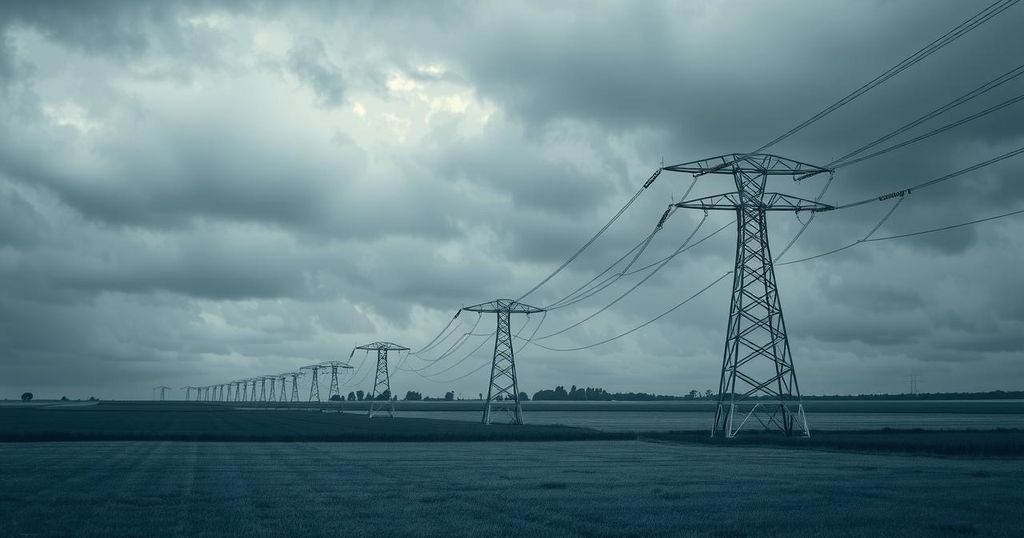The US has revoked Iraq’s waiver to pay Iran for electricity, enhancing pressure on Tehran amid Trump’s strict sanctions aimed at halting Iran’s nuclear and military endeavors. Iraq faces challenges due to this decision yet is exploring alternatives for energy security, while US officials encourage reduced dependence on Iranian energy.
The United States government has officially revoked a waiver that permitted Iraq to pay Iran for electricity imports, thereby intensifying the economic isolation of Tehran. This decision, conveyed by a State Department representative, aligns with President Donald Trump’s renewed commitment to a strict “maximum pressure” campaign intended to inhibit Iran’s financial capabilities. The administration posits that these sanctions are crucial to counteract Iran’s nuclear ambitions, its ballistic missile development, and its support for various terrorist organizations.
Under Trump’s administration, which began in January, he reinstated rigorous measures against Iran, reflecting a continuation of the policies during his first term when the US exited the Iran nuclear deal. The overarching aim of Washington is to sever Iran’s access to global markets, particularly targeting its oil revenues, which, according to US officials, fuel destabilizing activities throughout the region. Conversely, Iran refutes claims of pursuing nuclear weapons, asserting that its nuclear program serves peaceful purposes.
The cessation of the waiver presents operational challenges for Iraq, heavily reliant on Iranian electricity to fulfill its energy requirements. Farhad Alaaeldin, an advisor for foreign affairs to Iraqi Prime Minister Mohammed Shia al-Sudani, remarked that Baghdad is actively seeking alternatives to mitigate potential disruptions. He underscored Iraq’s commitment to enhancing energy security through increased domestic production and modernization of its electric grid.
US officials have consistently encouraged Iraq to diminish its dependence on Iranian energy supplies. Additionally, the negotiations concerning the waiver have been utilized as leverage to motivate Baghdad to recommence Kurdish crude oil exports through Turkey—a strategy poised to stabilize oil markets while further isolating Iran. For further insights on the implications of this decision for regional energy dynamics, please refer to the complete article.
In summary, the revocation of the waiver by the US has significant implications for Iraqi energy security and Iran’s economic isolation. With the ongoing pressure from the Trump administration, Iraq faces operational challenges and is seeking alternatives to maintain its energy needs. The situation also highlights the broader US strategy to limit Iran’s nuclear and military capabilities by cutting off its financial resources. Reduced reliance on Iranian energy and cooperation with Kurdish oil exports can substantially alter the regional energy landscape.
Original Source: themedialine.org






